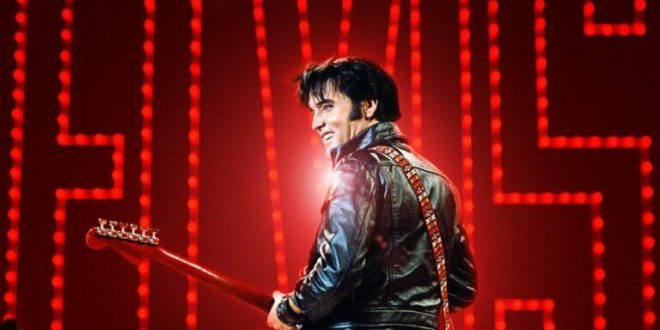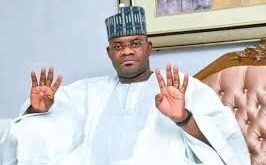
Elvis Presley’s comeback Special in 1968 remains one of the most iconic shows in music history.
In tight, black leather, his name illuminated in red neon, Elvis the legend became an icon as he risked and rescued his musical career in the audacious, landmark ’68 Comeback Special.
Following 10 years of increasingly cheesy movies after leaving the army, he was in danger of becoming an irrelevance to a younger generation who had grown up with The Beatles but the TV special followed by the acclaimed From Elvis In Memphis album changed everything.
It took him breaking free from the control-freakery of Colonel Tom Parker, played by Tom Hanks in the new movie, to make Singer Presents…Elvis, now better known as the ’68 Comeback Special. The King reclaimed his crown.
The TV concert was originally proposed as a safe, family Christmas show by Parker but Elvis turned it into something else and reinvigorated his career.
“Parker wanted it to be a Christmas Special, akin to a Bing Crosby or Dean Martin-type show, a real family thing,” said Matt Shepherd, author of Elvis Presley: Stories Behind The Songs. “Thank goodness Elvis went against Parker’s wishes, one of the rare occasions when he did.
“There was one concession in the form of the inclusion of Blue Christmas but the rest was down to Steve Binder and Elvis.”
Binder, the show’s director, and Elvis came up with the concert where Elvis performed first with his band in an intimate circle, then in front of iconic red lights spelling out his name.
It may have been a virtuoso performance but Elvis, who spent a month training to get in shape for the recording (even slimming down to a size 28 waist) but no amount of preparation helped with his nerves.
“Elvis was so nervous and, it seems odd to say, doubting himself,” said Shepherd. “He’d not been in front of a live audience for many years. Instead, he’d been locked away in Hollywood, churning out three movies a year, surrounded by people who wanted the film to be a success.
“Then he suddenly had to go out in front of an audience again. It was a heck of a thing.
“My favourite moment in the Special is where you see Elvis grabbing for the microphone on the mic stand. If you look closely you can see his hand is visibly shaking. It just showed Elvis as a human being, that he was really, really nervous about this moment.”
The show turned The King’s flagging career around and led to him focusing more on live shows and, eventually, his famed Las Vegas residency.
“The ’68 Special really relaunched Elvis as a serious artist, as opposed to just being hailed as a movie star,” said Shepherd. “A couple of years before he’d recorded songs like Big Boss Man and Guitar Man, and recorded covers of Bob Dylan’s Tomorrow Is A Long Time, which Dylan loved.
“But the ’68 Special showed the world, once again, the rebel side of Elvis as seen in 1956 on The Ed Sullivan Show, and on The Milton Berle Show. This was what the teenagers of America had loved, and what had made the parents think this was their worst nightmare.
“That rebel side disappeared when Elvis came out of the army when he was making those middle-of-the-road, family-orientated movies but it re-emerged again in ’68.
“The ’68 Special wasn’t just a golden moment of TV but obviously so important for his career.”
 Top Naija News: Nigerian News, Breaking News Nigeria and World News Top Naija News is a daily news publication in Nigeria, delivering the latest breaking news in Nigeria and around the world.
Top Naija News: Nigerian News, Breaking News Nigeria and World News Top Naija News is a daily news publication in Nigeria, delivering the latest breaking news in Nigeria and around the world.




